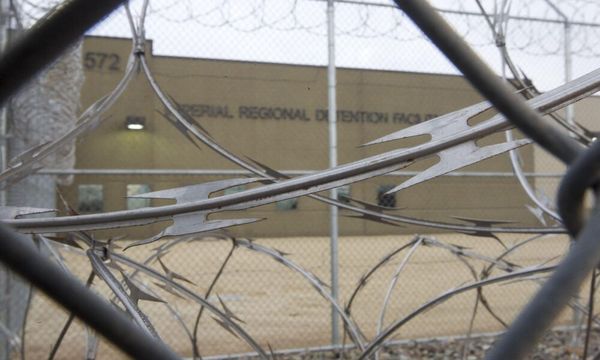
In a year that promises its fair share of legal battles, the political arena is shaping up to be no exception. Supporters of former President Trump have raised objections to his exclusion from the primary ballot in multiple states. Maine's Secretary of State, Shanna Bellows, recently made headlines as she became the second state official to disqualify Trump from the ballot. However, the decision was met with controversy, escalating into a concerning incident over the weekend.
On Friday night, Bellows and her husband became the targets of a disturbing hoax when a fake emergency call, commonly known as 'swatting,' was placed to the authorities. The caller falsely claimed to have broken into Bellows' residence, triggering a massive response from law enforcement and first responders. Fortunately, Bellows and her husband were not at home at the time, and it was quickly discovered that no intrusion had occurred. Nevertheless, this incident underscores the escalating threats and harassment Bellows and her team have faced since her decision to remove Trump from the GOP primary ballot.
Expressing her dismay over the situation, Bellows condemned the act of swatting, emphasizing that such actions against elected officials fulfilling their duties should not be tolerated. The threats and intimidating communications that she and her team endure daily have reached an unacceptable level, demanding immediate intervention.
In response to the uproar, Bellows, a Democrat, has temporarily suspended her decision, awaiting an expected appeal from the Trump team on Tuesday. However, unless the U.S. Supreme Court intervenes and supports the ruling of Colorado's Supreme Court, which cited a Civil War-era insurrection clause to eliminate Trump from the state's primary ballot, the former president's name will still appear on Colorado's ballot.
Interestingly, some of Trump's Republican competitors have rallied against the efforts to remove him from the primary ballot. Governor Ron DeSantis, for instance, argued against any candidate's disqualification, warning that celebrating such an occurrence would only reflect poorly on them. Despite the opposition, a recent report from the New York Times suggests that Trump himself is unsure whether the conservative justices he appointed to the Supreme Court would rule in his favor, as they may be inclined to avoid any perception of political bias.
As the legal battles continue to unfold, the clock is ticking for a resolution. With the deadline for certifying the names on the ballot fast approaching, all eyes are on the courts to see how swiftly they will address the complicated legal arguments surrounding Trump's exclusion from the primary ballot. The outcomes of these cases will undoubtedly have far-reaching consequences, potentially shaping the political landscape for the upcoming year and beyond.






